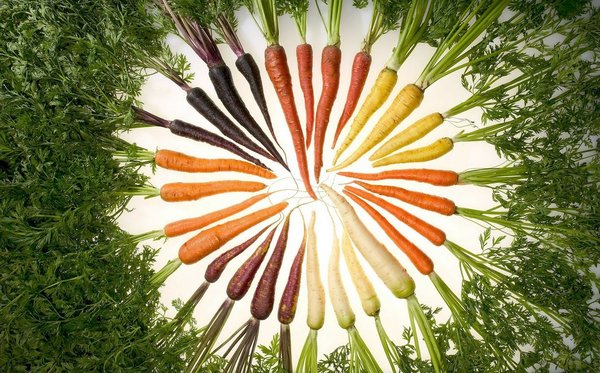- Share this article
- Subscribe to our newsletter
German scientists call for commons-based seed production
Private sector interests and patent protection tend to harm diversity, the researchers of the Institute for Ecological Economy Research (IÖW) at the University of Oldenburg maintain. In order for more resilient varieties based on the concept of seed as a common good to appear in fields and on plates, the scientists recommend long-term promotion programmes and better political framework conditions for commons-based seed production.
“Given the progressing climate crisis, agriculture has to become more resilient,” says IÖW scientist Lea Kliem. “This is why it is important to promote seed as a common good. The aim is to secure our food for the future and boost independence among farmers vis-à-vis corporations.”
In the German-speaking area, several initiatives and companies in the seed sector are already working on providing seed and varieties as commons – with growing success. As Kliem and her colleague Stefanie Sievers-Glotzbach, also at the University of Oldenburg, demonstrate in a study, these initiatives are pursuing sustainable goals for the public good. They seek high-value food putting little strain on the environment and want to maintain and expand a high level of diversity among useful plants. Thus they facilitate farm response to regional specialities and impacts of climate change.
The study “Seeds of resilience: the contribution of commons-based plant breeding and seed production to the social-ecological resilience of the agricultural sector” was published in the International Journal of Agricultural Sustainability in November 2021.
Commons versus the private sector – diversity and ownership make seeds more sustainable
Industrial seed production has specialised in supplying high-yield varieties which only thrive in optimum conditions. But this makes the plants particularly vulnerable to climate change impacts. “In contrast, producing seed as a common good demonstrates clear advantages,” explains Sievers-Glotzbach. Together with Kliem, she evaluated reports and brochures from a selection of companies and initiatives in Germany, Austria and Switzerland in order to compare the goals and approaches of companies working for the public good and private sector producers.
“The commons-based producers whom we studied opt for diversity instead of high-yield varieties,” says Sievers-Glotzbach, adding that this enables the plants to better adapt to regional specialities and changing climatic conditions. Furthermore, she points out that seed from these producers is particularly suitable for organic farming.
The key to seed diversity and adaptability is the way in which processes are organised, for in principle, all plant-breeding and farming actors can participate in it. “Seed can be freely used and diversified – which went without saying for farmers up to the beginning of the twentieth century. We have observed that commons-based initiatives focus more on cooperation than private enterprises and that their decision-making structures tend to be more decentralised and participatory,” Kliem notes.
New varieties for organic farming in Central Europe
One of the six commons-based initiatives from Germany, Austria and Switzerland is the “Verein Kultursaat”, an association comprising 30 biodynamic vegetable growers and breeders. Since the 1980s, this association has already developed more than 100 vegetable varieties. These open-pollinated, i.e. reproduceable varieties enrich species diversity in organic farms. Vegetable seed is neither patented nor is the respective variety protected, so that the seed can be multiplied, sold and further developed.
In order to further enlarge the pool of resilient varieties, the researchers recommend promotion programmes focusing on commons-based farms and initiatives and securing free access to genetic resources in the long term.
(IÖW/wi)
Reference:
Lea Kliem, Stefanie Sievers-Glotzbach (2021): Seeds of resilience: the contribution of commons-based plant breeding and seed production to the social-ecological resilience of the agricultural sector. In: International Journal of Agricultural Sustainability. https://doi.org/10.1080/14735903.2021.1963598
More information:
Forschungsgruppe "Right Seeds"
Rural 21 issue (2/19) on Plant breeding





Add a comment
Be the First to Comment